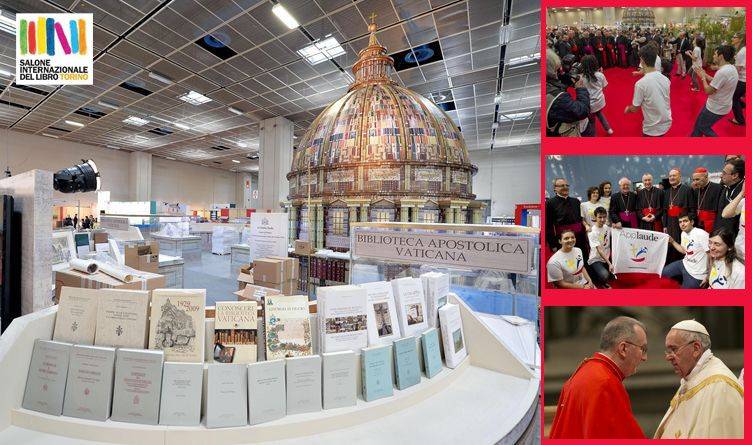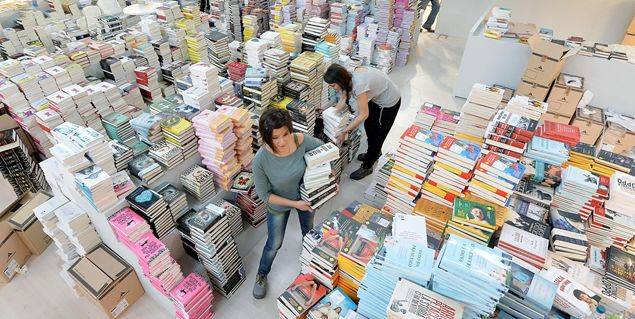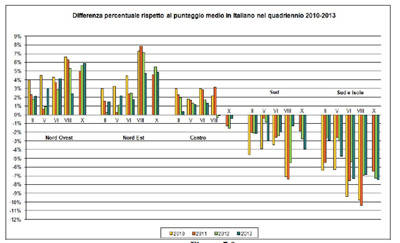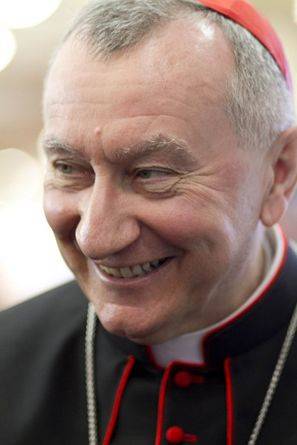Books and Words
ROME – For Mario Caligiuri, official head of cultural affairs for the Reggio-Calabria region, “Reading is an extraordinary antidote for the disadvantaged. It leads to knowledge and to personal and social rehabilitation.” He has consequently sent to Parliament a bill that would allow any convicted criminal whose prison sentence exceeds six months a three-day reduction of the prison term for every book read, for a maximum of 48 freebie days a year.
His proposal happens to coincide with one of Italy’s halcyon events, the annual International Book Salon at the Lingotto of Turin, which lasted from May 8-12.
Unusually, the Vatican was a participant, represented by Cardinal Gianfranco Ravasi, head of cultural affairs for the Vatican and a regular weekly columnist for Italy’s financial daily Il Sole-24 Ore. With him in attendance was Cardinal Pietro Parolin, Secretary of State, whose address to the salon May 10 considered the use of the language by Pope Francis from the point of view of linguistics, pastoral message and theology.
The pope excites sufficient media interest that Time magazine elected him man of year, Cardinal Parolin pointed out. “My subject,” said the cardinal, “is the words of Francis. And my objective is to present some of the most incisive words Pope Francis has used in speeches, documents, interviews and spontaneous communication in his dialogues with pilgrims at the general audiences.”
An example: when elected in March 2013, Francis “catalyzed attention” by saying he had been taken from “almost the end of the world.” His noteworthy style of communication is novel for the church, said the cardinal, and his use of language is “direct and informal…immediately transformed into the emblems and symbols of mass communication.”
In this way the pontiff’s words are suited to new media because essential, with “few words of strong plastic impact on broad themes” while also reviving traditional church means of expression. “Pope Francis puts his listener, whoever he may be, in a condition of parity, and not at a distance. His words facilitate.” Last November the weekly news magazine Vita published a booklet called “L”Abici’ del Papa,” which showed that the pontiff’s use of words “sculpted his figure in the eyes of the world,” said the cardinal. (For the interesting full text in Italian >>>
Another star attraction May 11 was Steve McCurry, National Geographic photo-reporter and the author of a book on the stories behind his photographs. His illustrated talk was so popular that he had to give it twice, and gratified his hosts by saying that, in the end after all his travels (India is one of his favorites), “I work often in Italy, and always return happily. Italy is complete: the best combination of people, food, culture, landscapes and colors.”
The other starlets were the children, and this is a positive sign. Many were too tiny to be able to see the books laid out for them to peruse on the stands, but still excited to be at the fair. No less than in other countries, the book trade is in the doldrums, but the children’s market is in expansion. According to the results of a Nielsen poll, in 2013 the children’s market rose by 3.3% for copies sold, and by 3.1% in monetary terms. Trade book (that is, commercial) sales were down by 2.3% in volume and down by 6% in value in 2013 over 2012.
The biggest losers were what is called “practical non-fiction” in the trade – that is, lifestyle, leisure time and guide books, down 13.2%. As in the U.S., independent book stores are in trouble, and book sales there dropped from 36% to 35% last year over 2012. At the same time, sales on line rose, but only by a disappointing 0.3% to 6.6%. With somewhere between 4 and 7 million titles downloaded, the e-book share of the Italian market so far occupies only 3%, for circa $40 million.
The increase in children’s books is a positive signal at a time when Italian education is coming under heavy criticism. In an analysis of comparative school achievement conducted by the Economist Intelligence Unit and published by Pearson, South Korea, Japan, Singapore and Hong Kong topped the list of the 40 nations studied. Italy came in only at number 25, just below Norway, Hungary, France and Sweden.
One possible reason for the low rating is a lack of investment in teachers, said Anna Maria Ajello, president of the Istituto Invalsi, which conducts its own research into scholastic achievement. “Instruction must be a collective undertaking.” That institute’s own statistics for 2013 show a depressing contrast between the high scholastic achievement in the North, the middling achievement in the South of Italy and even lower rates of achievement in the farthest south, Sicily and Sardinia.
The good news, however, is that in the South the scholastic achievement figures for 2013 were notably better than in 2012 and far superior to those of 2010-2011. See >>>
The moral of the story is that to read a book – to know how to use words, as Pope Francis does -- can do no harm, either to popes, prisoners or even students. Long live those who keep the book fairs alive.





































i-Italy
Facebook
Google+
This work may not be reproduced, in whole or in part, without prior written permission.
Questo lavoro non può essere riprodotto, in tutto o in parte, senza permesso scritto.